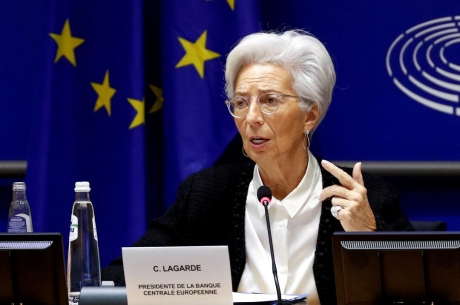The UK’s inflation rate rose to 2.3% in October, marking its first increase in three months, fuelled largely by soaring energy bills. This figure, released by the Office for National Statistics (ONS), exceeded economists’ forecast of 2.2% and showed a sharp rise from September’s 1.7%.
The largest contributors to the increase were housing and household services, primarily due to higher electricity and gas prices, the ONS reported. In contrast, falling prices in the recreation and culture sectors partially offset the overall rise.
The unexpected jump in inflation comes amid growing concerns over the cost-of-living pressures faced by households as winter approaches. Energy costs have been a particularly significant factor, with global energy prices remaining volatile and contributing to the upward pressure on UK household bills.
The data may have significant implications for monetary policy. Analysts suggest that the Bank of England could reconsider its approach to interest rates when it meets next month. Some had anticipated a potential rate cut to support economic growth, but rising inflation could push the central bank to maintain or even raise rates to keep price pressures in check.

Neil Rudge, Chief Banking Officer, Commercial at Shawbrook, said:”Price growth exceeding the Bank of England’s 2% target for the first time in two months may unsettle business owners, as significant cost pressures persist.
“The increase in Employers’ National Insurance continues to be a major challenge, further exacerbating the strain on businesses as rising costs remain difficult to manage. Additionally, the slower-than-expected reduction in the base rate, coupled with the difficulty in passing on rising costs to customers, means many business owners will need to reflect on the challenges ahead. In such an environment, resilience will be crucial. Those who can adapt and navigate these pressures will be best positioned to prosper.
“Looking ahead, the possibility of further rate cuts could reduce borrowing costs and provide businesses with some much-needed breathing room as they head into 2025. With the Autumn Budget now behind us, leaders should feel in a stronger position to advance their growth plans, with one less layer of uncertainty to navigate,” Rudge concluded.

Mike Randall, CEO of Simply Asset Finance, commented: “A rise in inflation adds further to SMEs’ already increased worries in the aftermath of the Budget.
“Businesses setting out plans on how to best navigate the increase in employers’ National Insurance contributions, as well the rise in the minimum and living wage, will now need to ensure additional cost pressures are also mitigated.
“There is good news, however. UK SMEs remain remarkably resilient and ambitious, with clear growth plans for the year ahead. But for these to be realised, it’s vital that they have a finance partner that can flex according to the challenges they face at any given point and back them to seize those growth opportunities. Support and encouragement from the government is vital too. If the Chancellor is truly steely-eyed on securing long-term economic growth, encouraging entrepreneurship cannot slip down the agenda.”









